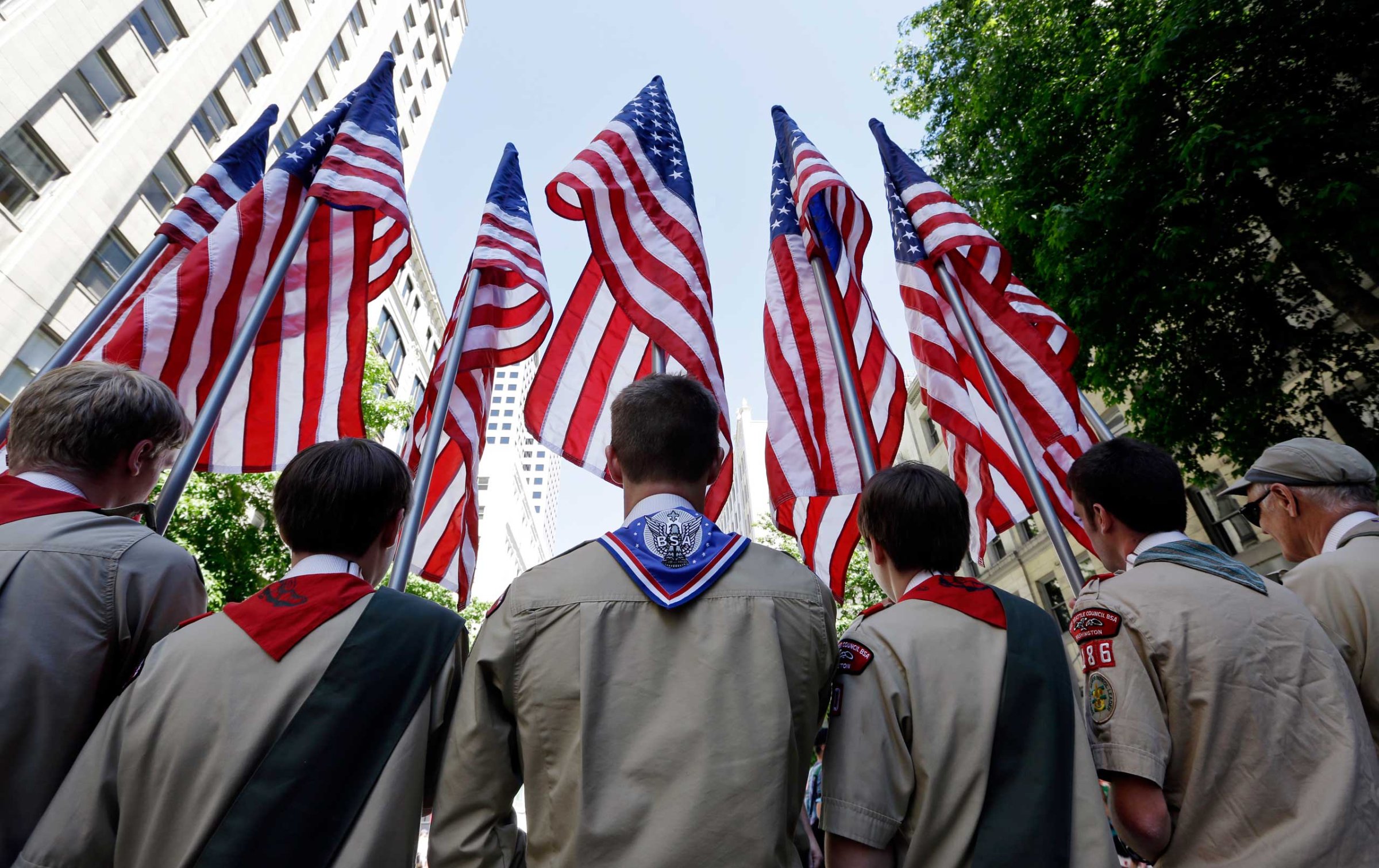
I’m inspired by the remarks Thursday from Boy Scouts of America President Robert Gates calling for an end to the group’s ban on gay adult leaders. His comments go far. Do they go far enough? No.
The changes Gates proposed would need to be approved at the group’s annual meeting. Even if put into effect, they leave the door open for individual troops to do the wrong thing. That’s not the right approach.
I think it’s high time the Boy Scouts get back to the business of preparing kids for the world out there, building communities, and doing the good things they have the potential to do, instead of the bad things they’ve been doing for so long—teaching inequality as an American value. I feel a bit once bitten, twice shy by this news. I’ve been calling for the Boy Scouts to change their policies for 25 years now, when I was expelled from the organization for being gay.
Boy Scouts meant a lot to me when I was young. When I was 17 and an Eagle Scout, they told me I was everything that a Boy Scout should be. Then when I was 18, and I came out as gay, and they discovered who I was as a person, then suddenly I wasn’t good enough.
Everything I was taught in the Boy Scouts growing up seemed to contrast with how they treated me. They represented themselves as an open and accepting organization, teaching young boys that they should be proud of who they are and where they come from, and what makes them different and unique. I believed in that organization and the things they had taught me when I was younger, the positive attributes and qualities that they inspired in so many Americans, and the potential for good that they had. I challenged the policy in the New Jersey Supreme Court and won, but when the Boy Scouts appealed to the Supreme Court in 2000, I ultimately lost in a deeply dived 5-4 ruling.
It wasn’t until 2013 that the group decided to end its ban on gay children as members, but still continued its ban on gay adult leaders. This initiative was wrong in many ways: It was great that they weren’t excluding young members, but it was wrong to tell someone that you can be gay when you’re a child, but you’re immoral as an adult. That’s a horrifyingly destructive and damaging thing to say to anyone, especially a young person.
They changed the policy because they couldn’t get away with standing against young people anymore. Throwing out a 25-year-old man is very different than throwing out a 13-year-old kid. What we’ve seen over the years is that children are coming out younger and younger. Society and America are more welcoming for young gay people.
But the Boy Scouts are still behind the times. They had an opportunity to be ahead of America, to do the right thing, and not waste years expelling children, losing money, and reinventing themselves as an anti-gay organization. Now, the Supreme Court is considering marriage equality. The majority of Americans is behind fairness, and looks very likely that the high court will do the right thing.
Hopefully the Boy Scouts can do some soul searching and see who they are, and who they want to be, letting go of the bigotry that they’ve embraced far too long. The Boy Scouts have the power to stop the damage done to its reputation and the integrity of the organization, and the very real-world damage they continue to do by embracing discriminatory policies. Hopefully they’ll make these changes and more to be certain the organization doesn’t become completely irrelevant. To paraphrase Dr. Gates, the status quo in the Boy Scouts of America can no longer be sustained. To which I’d add, these policies are damaging too many young lives.
More Must-Reads From TIME
- The 100 Most Influential People of 2024
- Coco Gauff Is Playing for Herself Now
- Scenes From Pro-Palestinian Encampments Across U.S. Universities
- 6 Compliments That Land Every Time
- If You're Dating Right Now , You're Brave: Column
- The AI That Could Heal a Divided Internet
- Fallout Is a Brilliant Model for the Future of Video Game Adaptations
- Want Weekly Recs on What to Watch, Read, and More? Sign Up for Worth Your Time
Contact us at letters@time.com